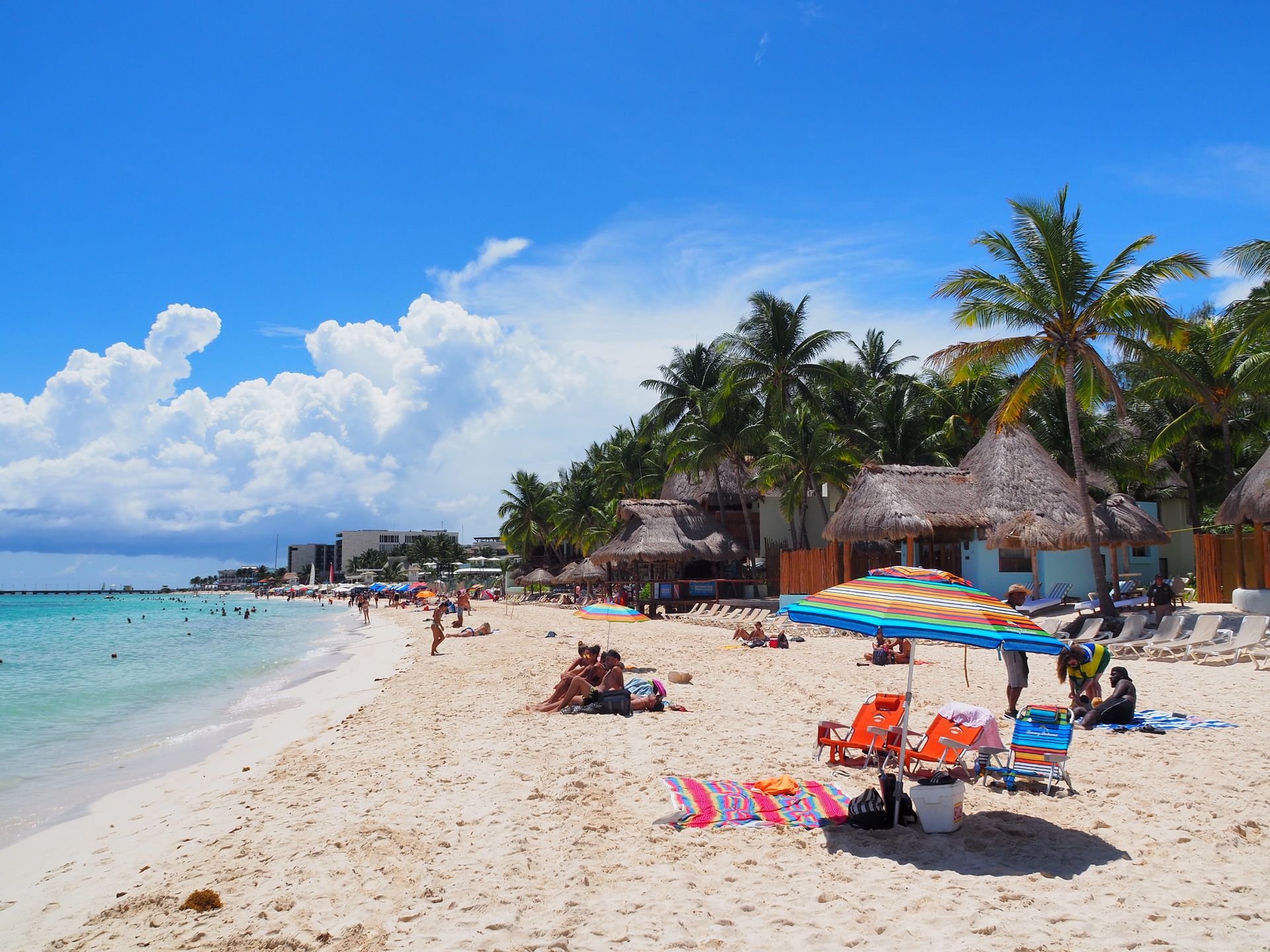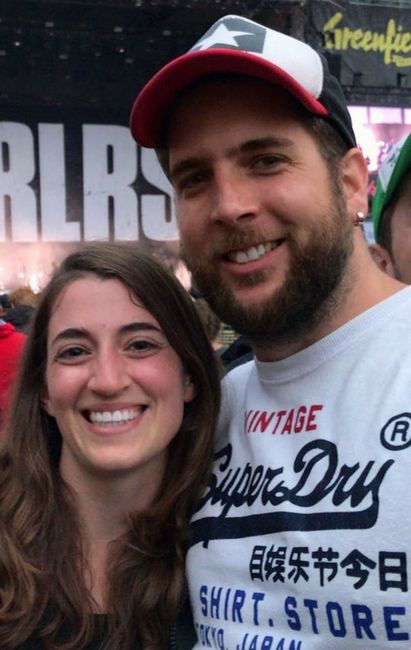
Auszeit - Reise Richtung Osten
vakantio.de/auszeit-reise-richtung-osten
Myeik - Dawei - Sin Htauk Beach
Argitaratu: 27.02.2019
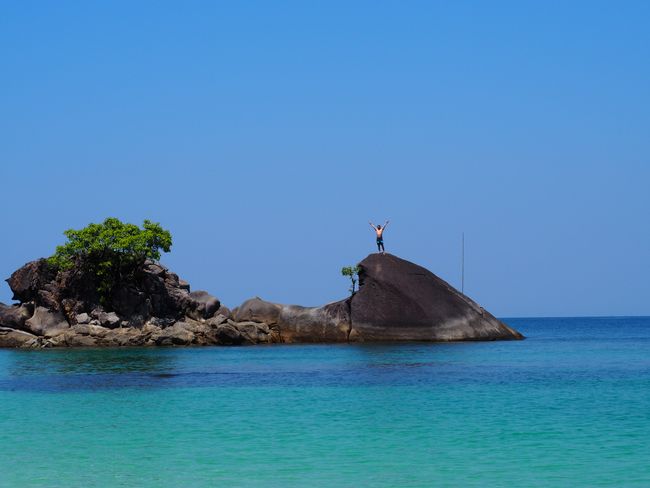
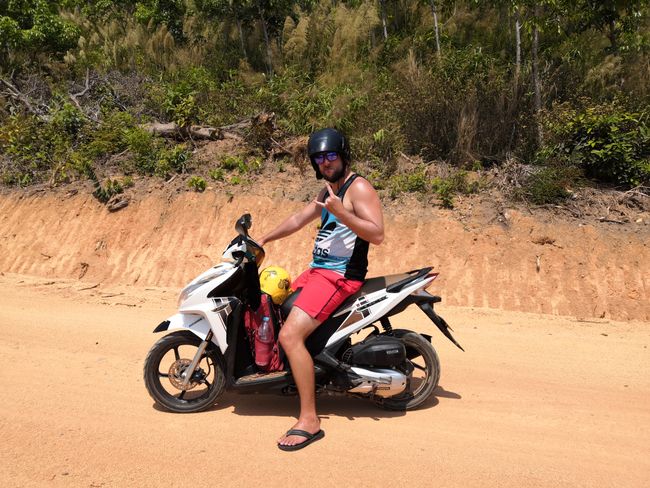
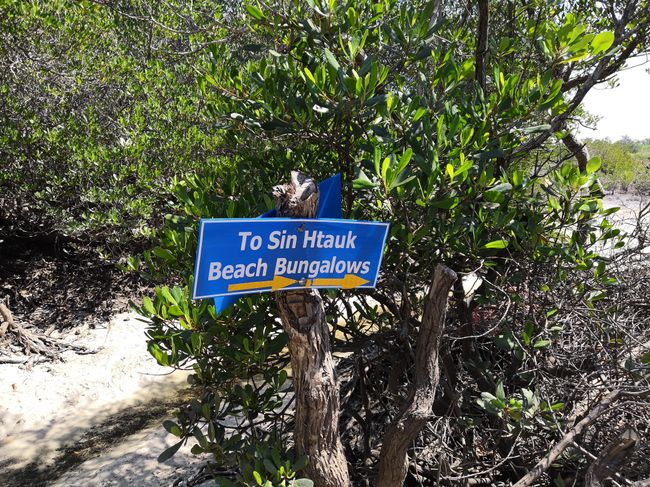
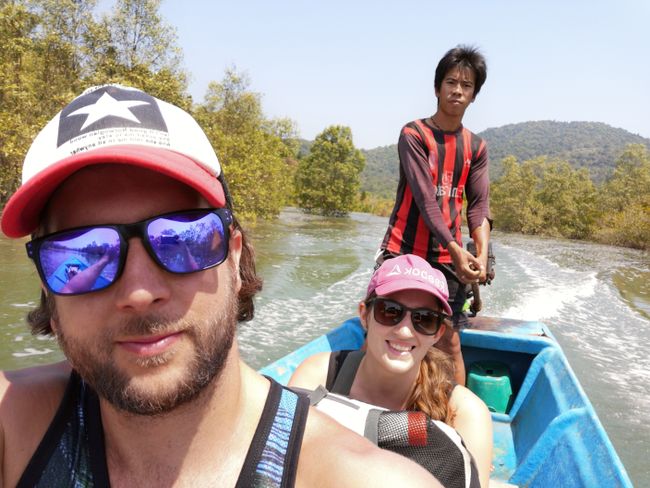
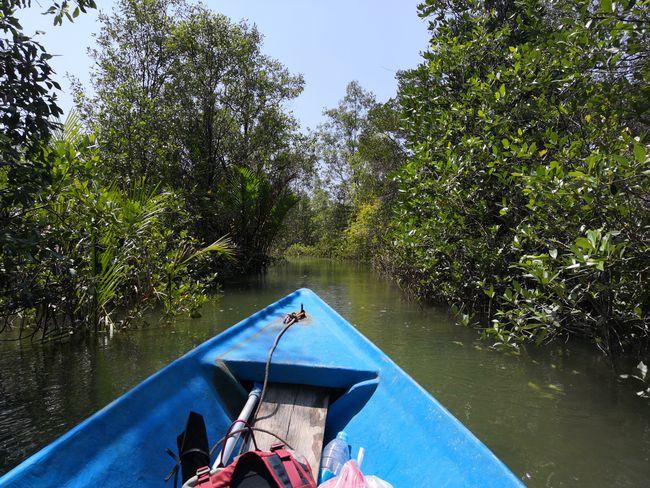
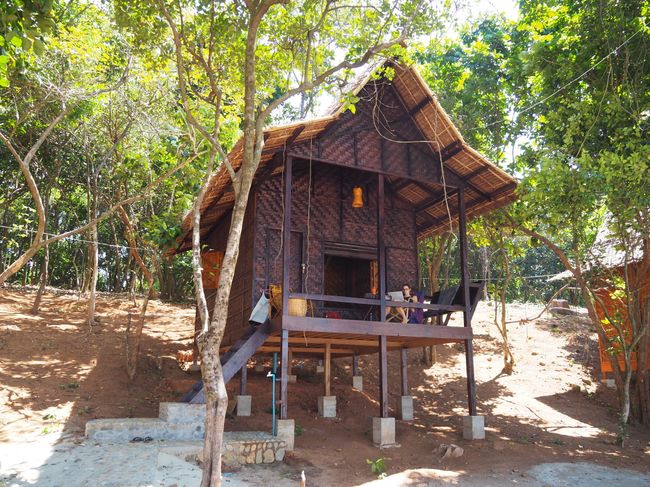
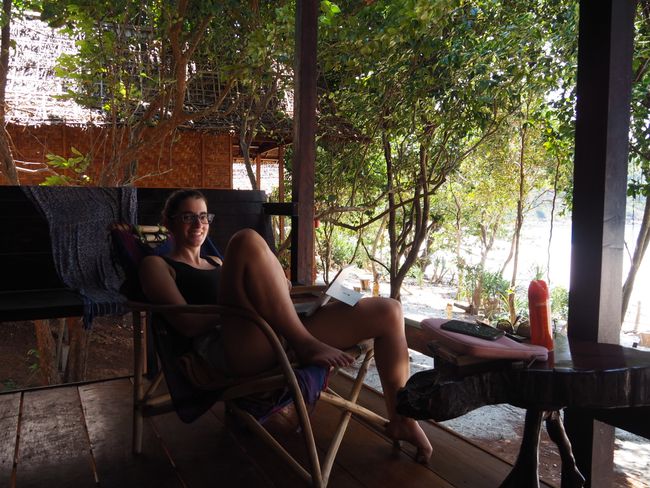
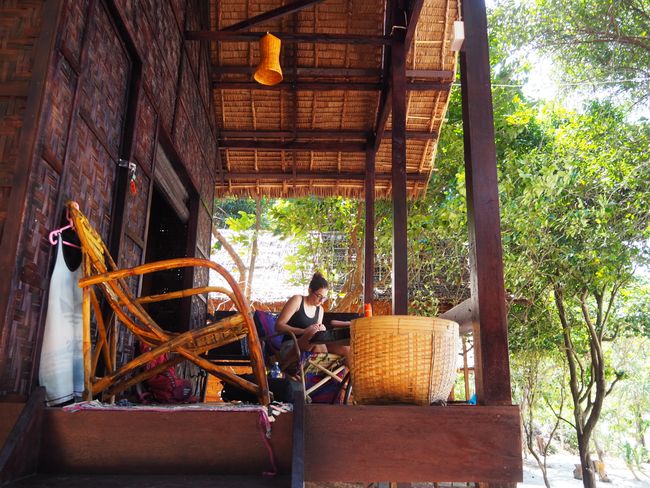
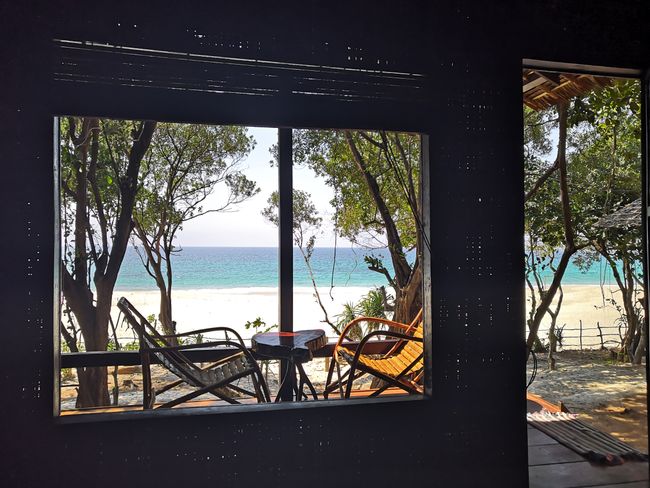
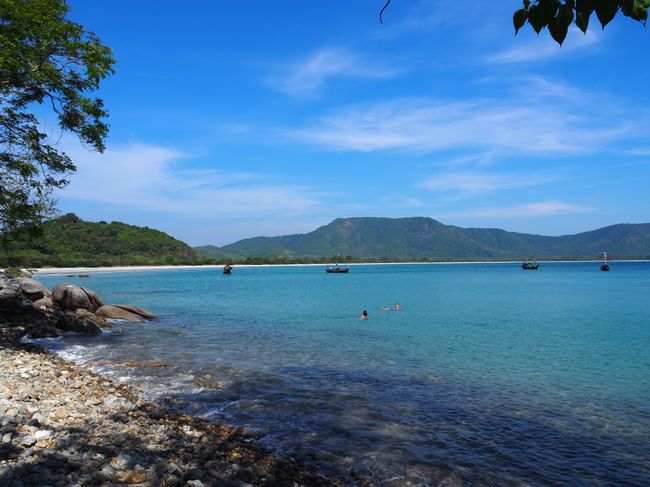
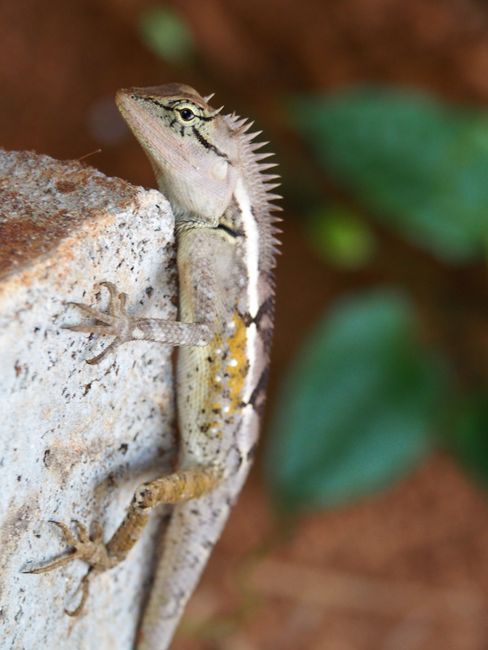
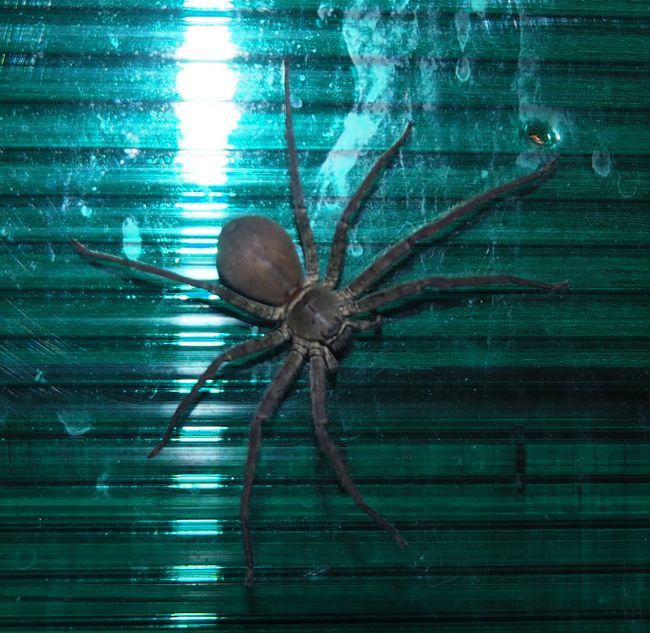
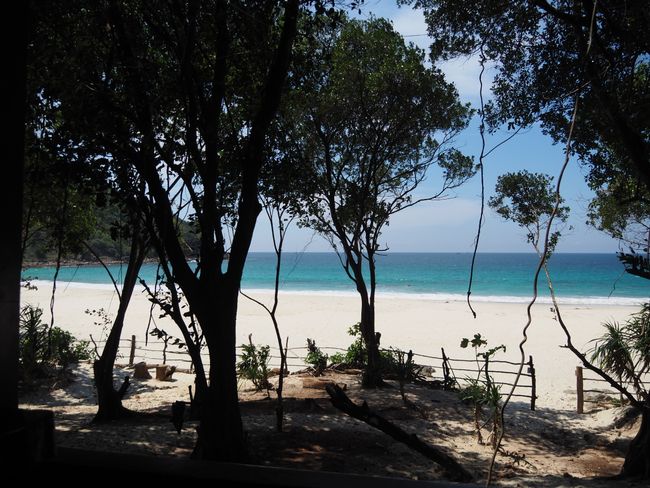
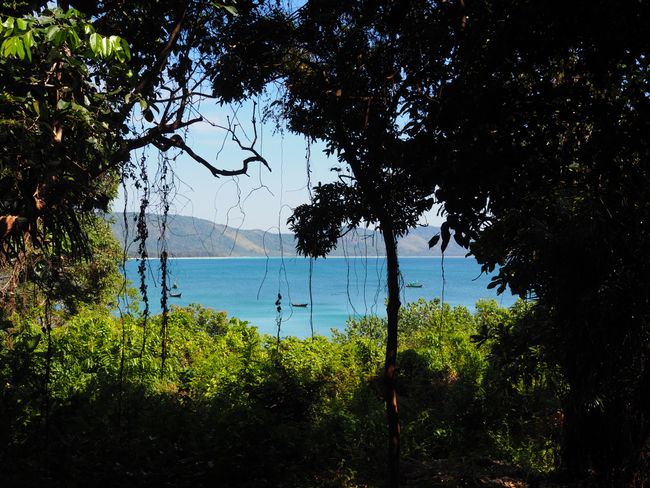
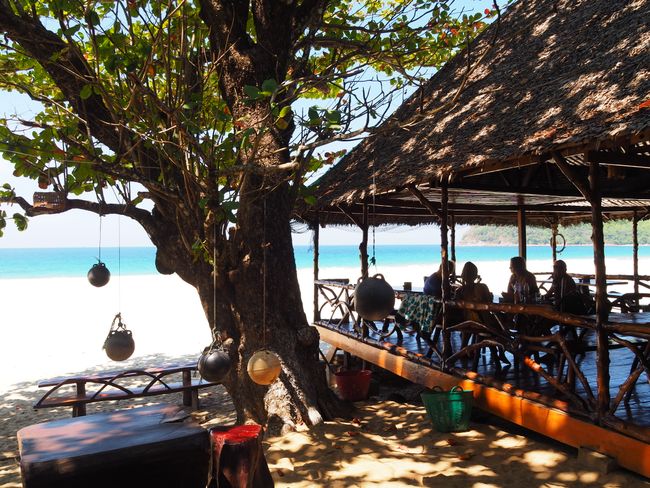
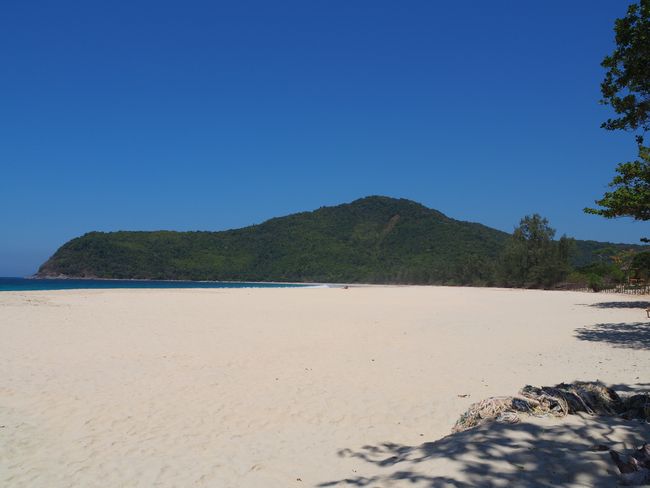
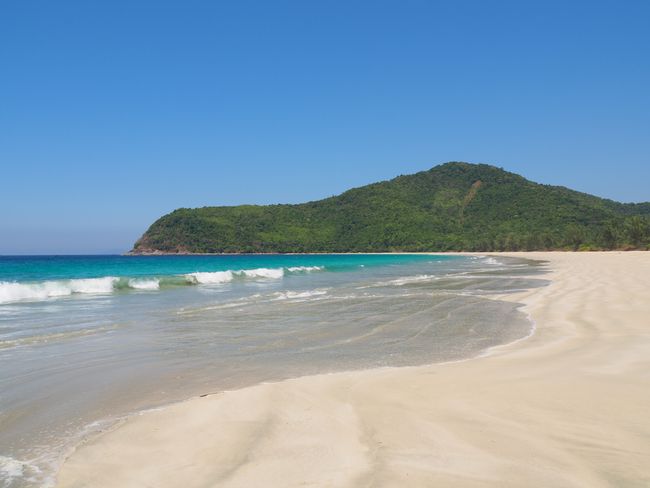
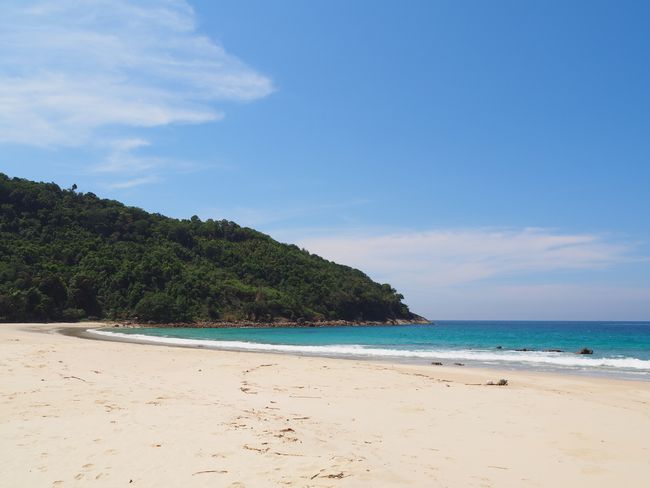
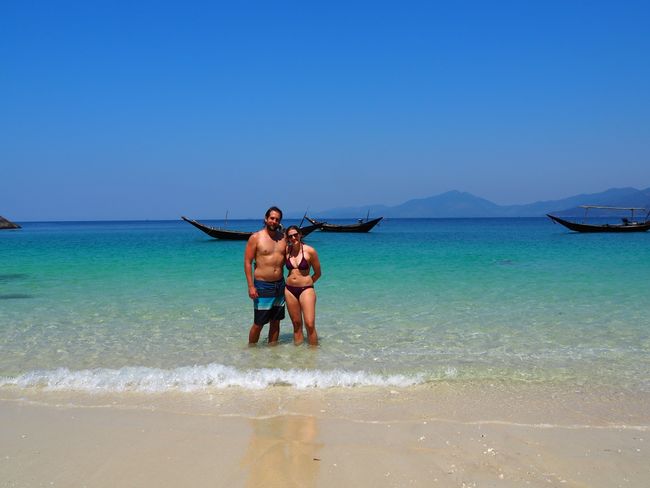
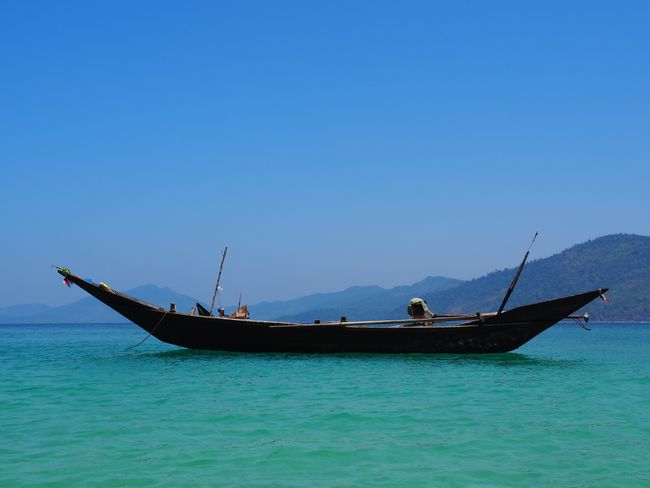
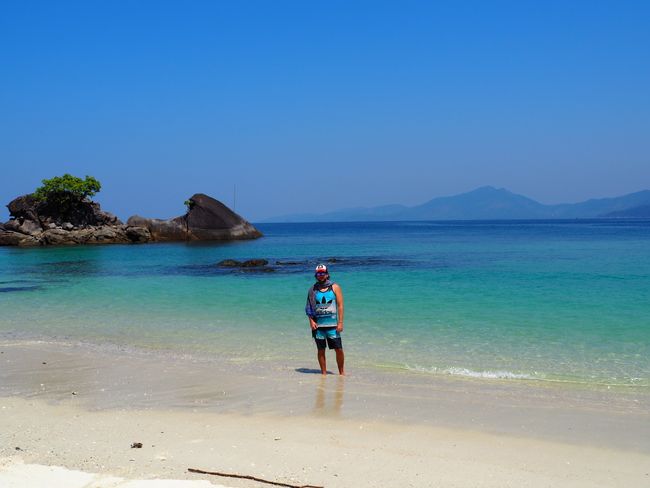
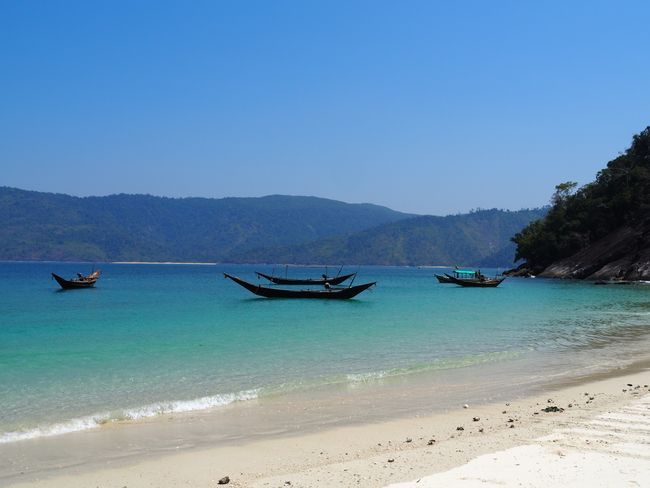
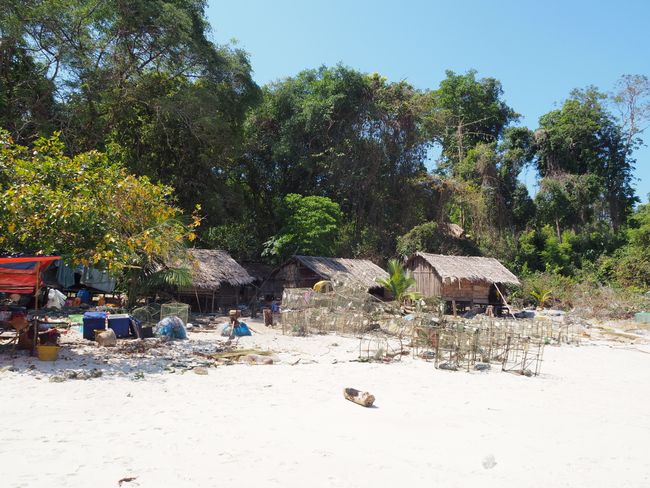
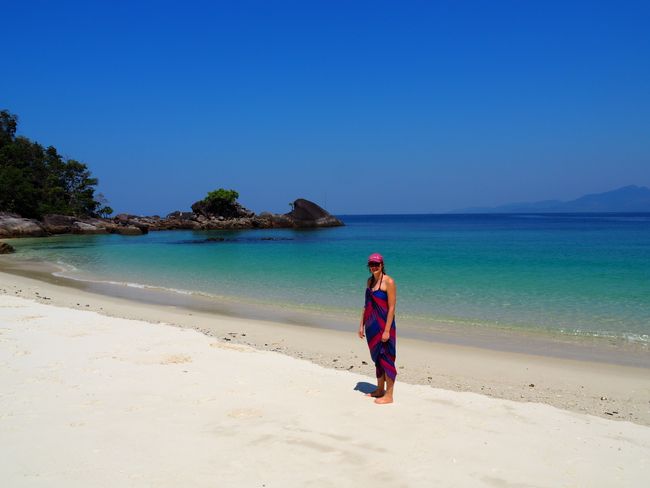
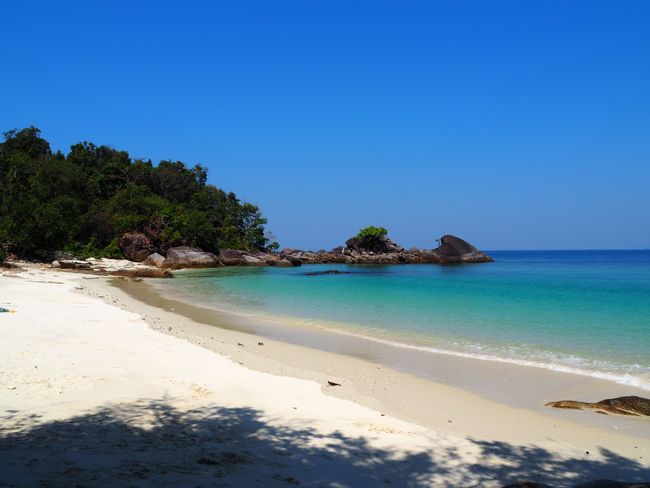
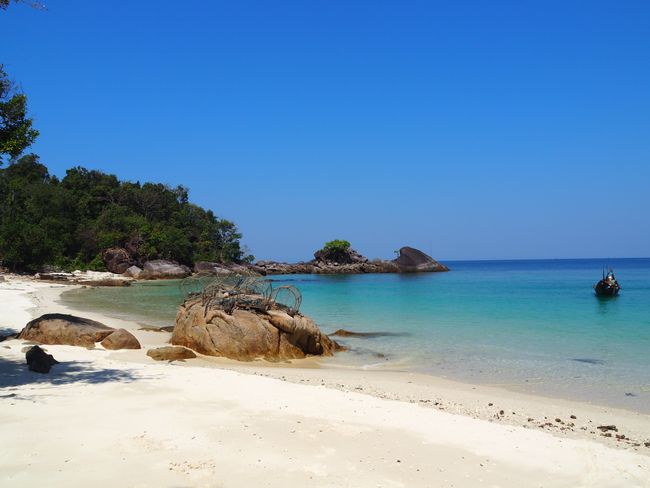
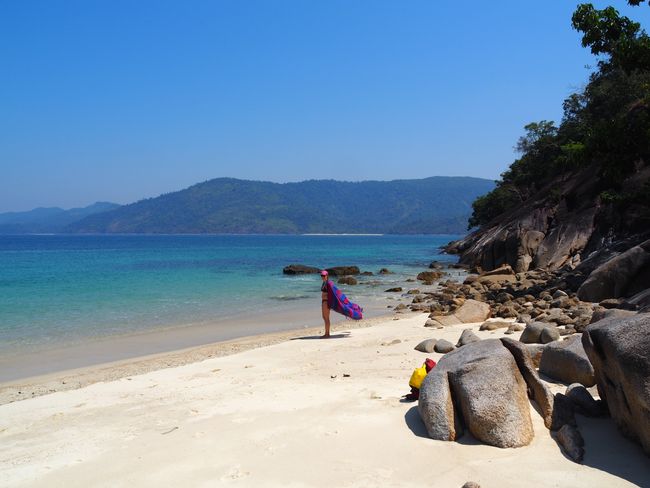
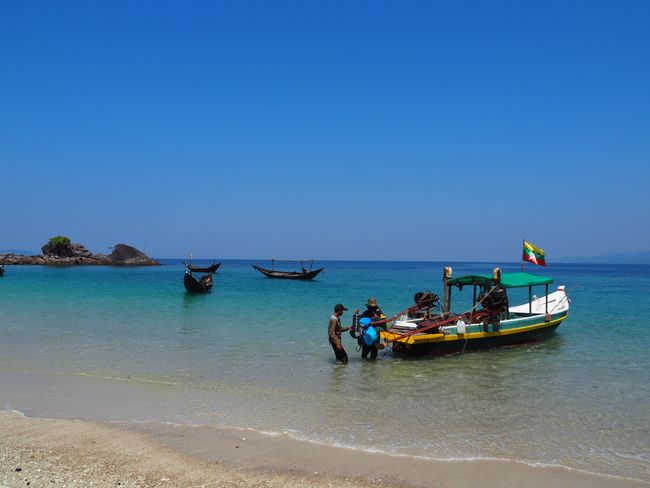
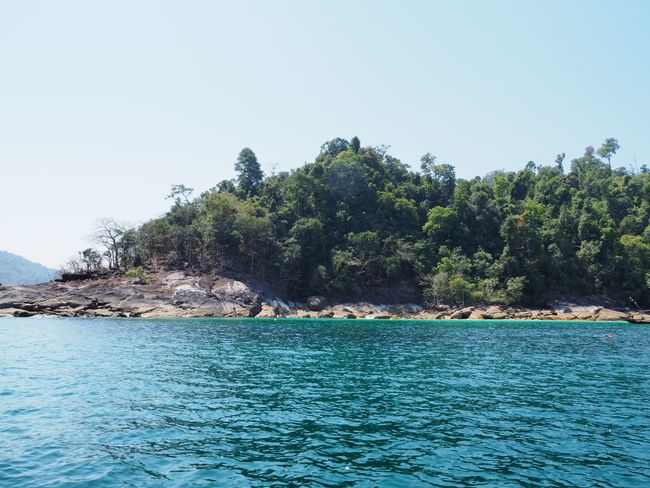
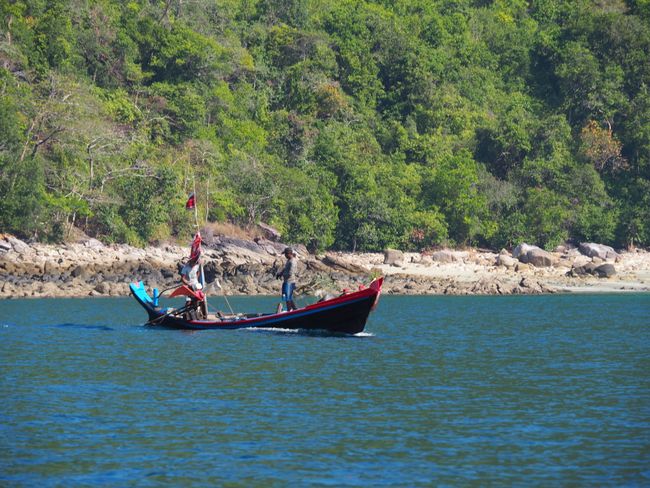
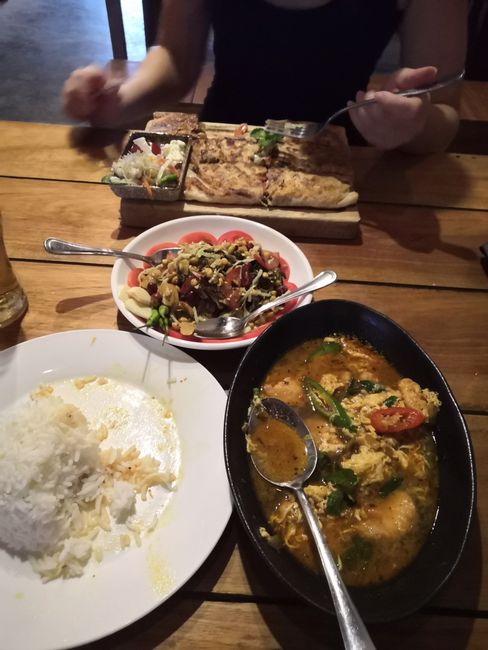
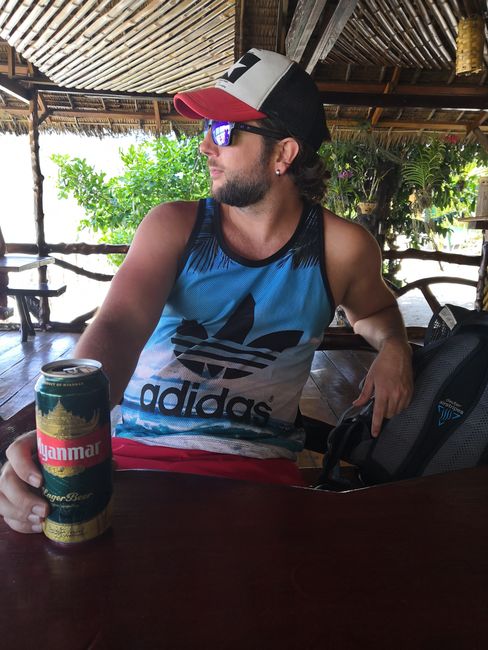
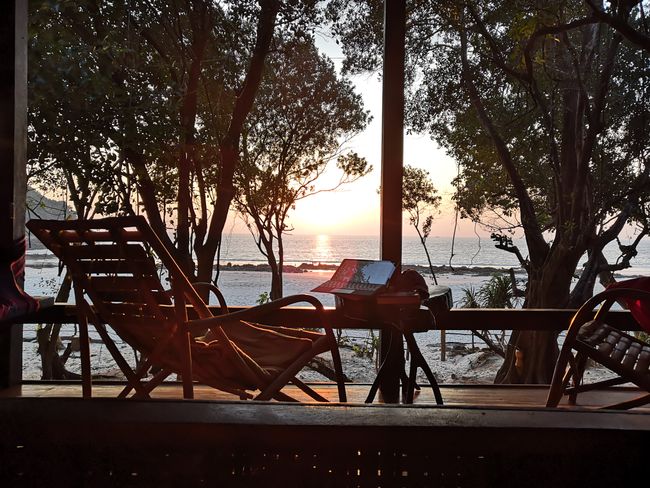
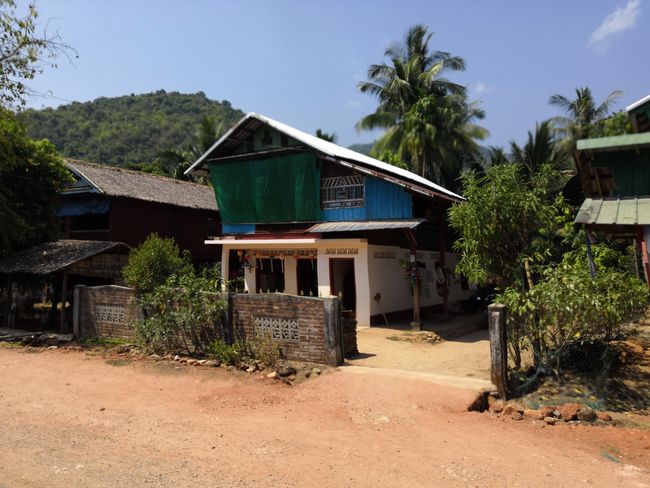
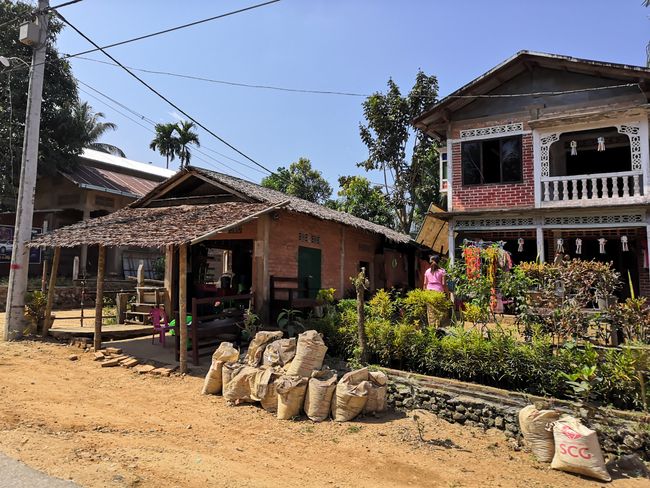
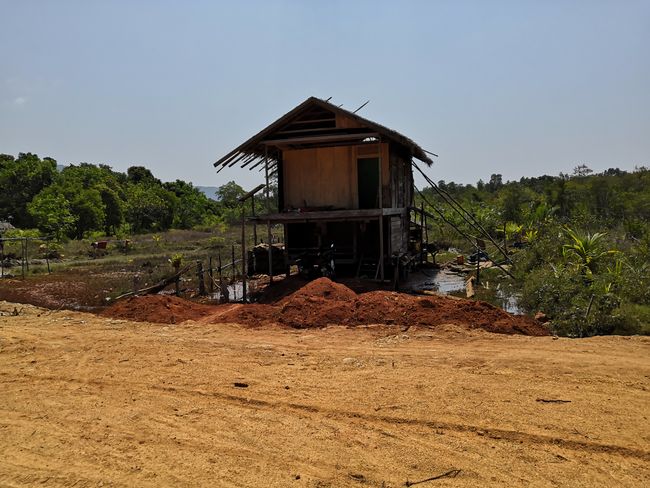
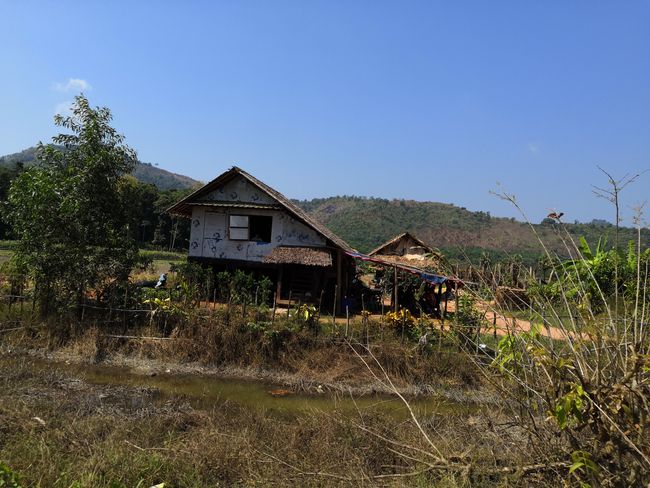
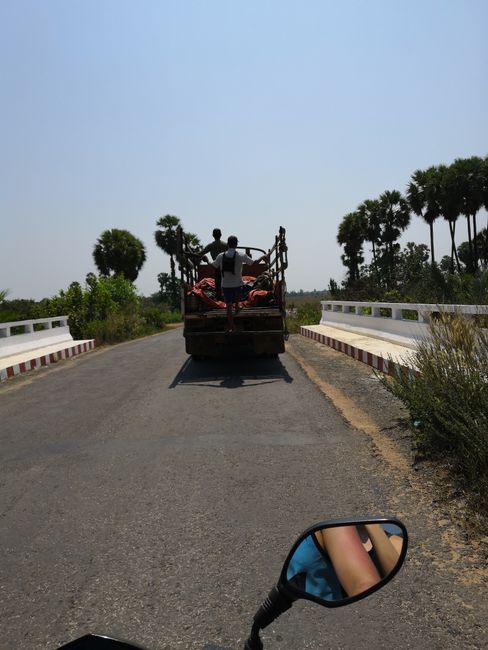
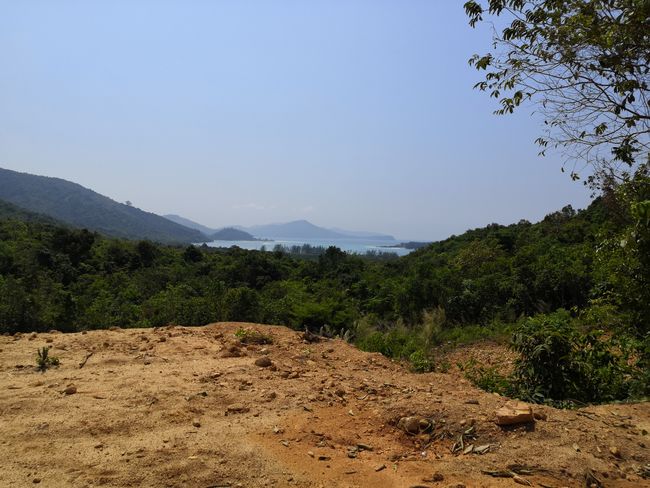
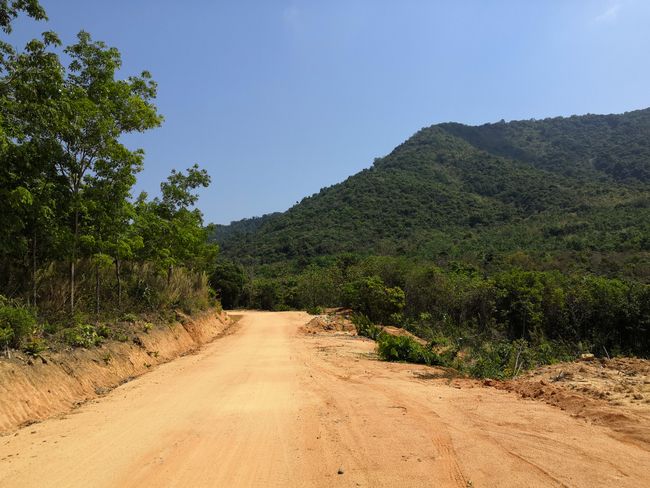
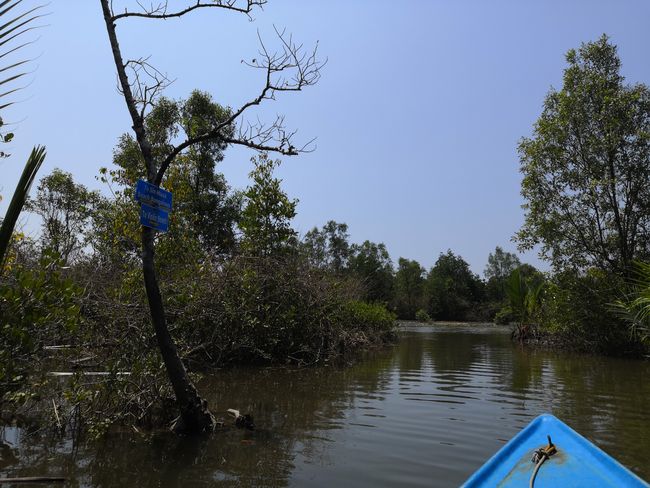
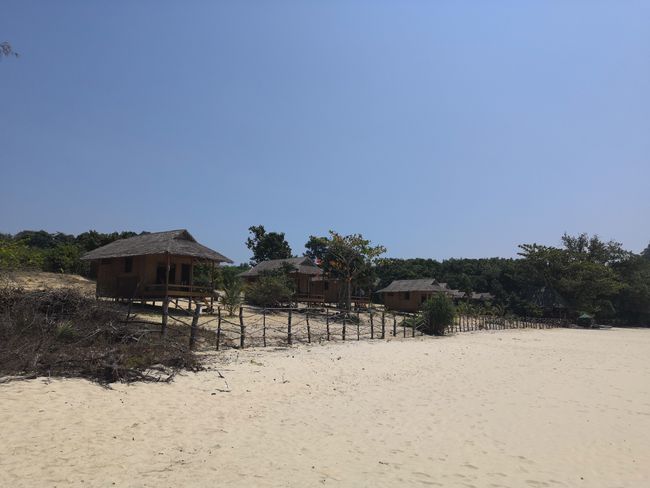
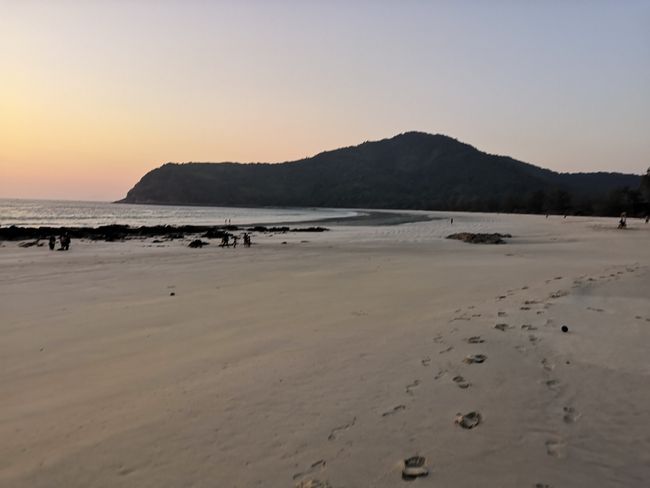
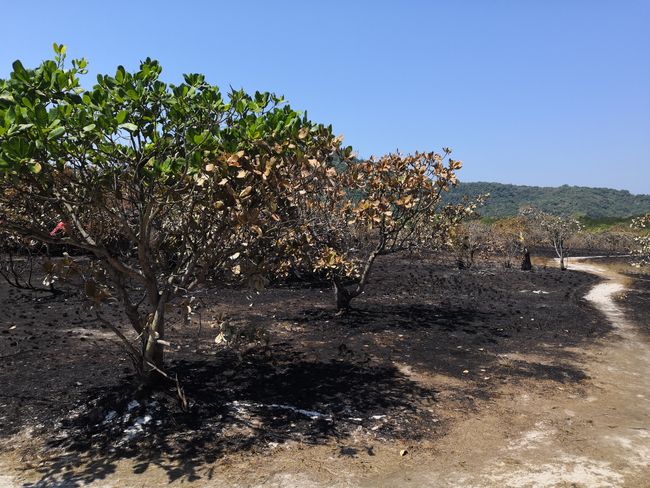
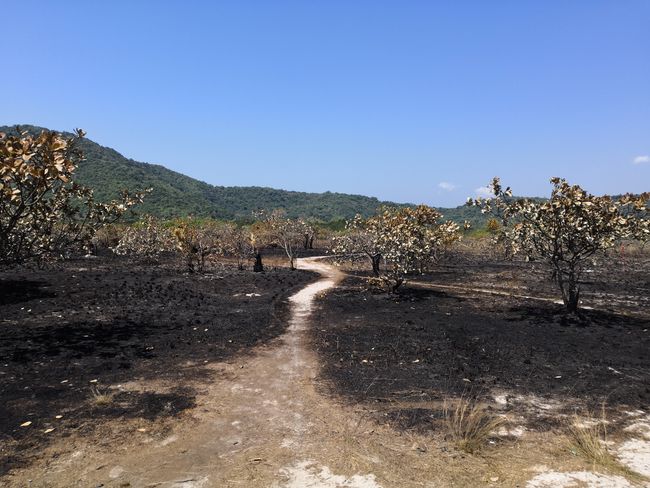
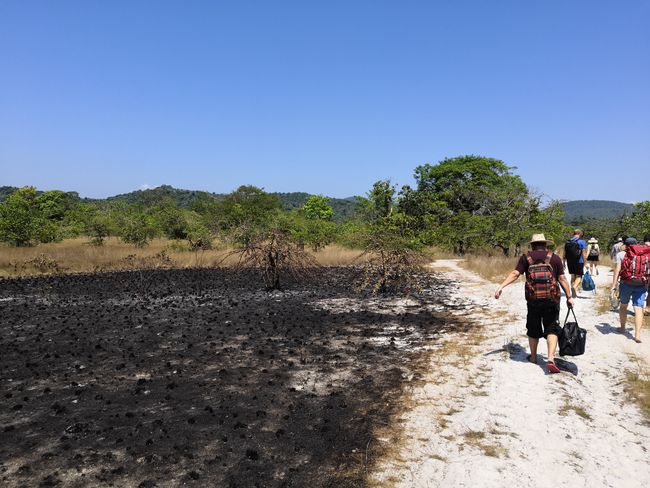
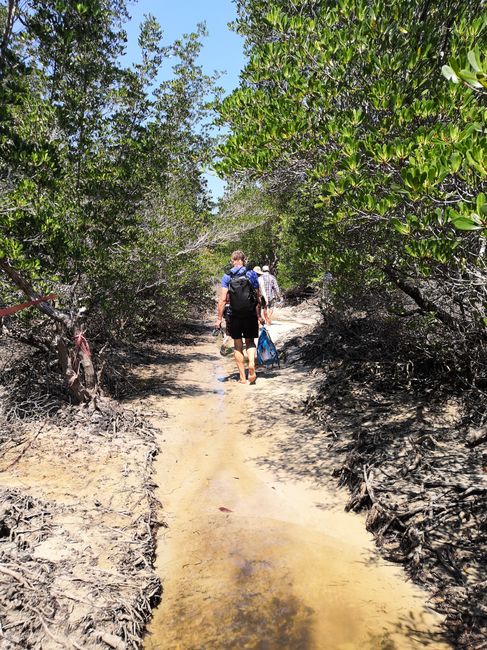
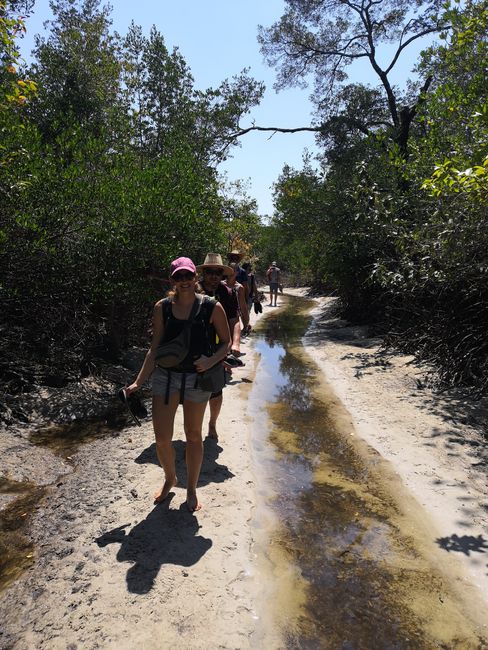
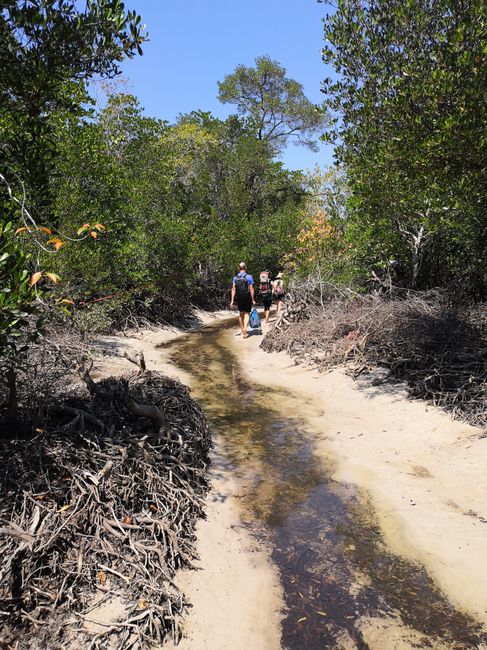
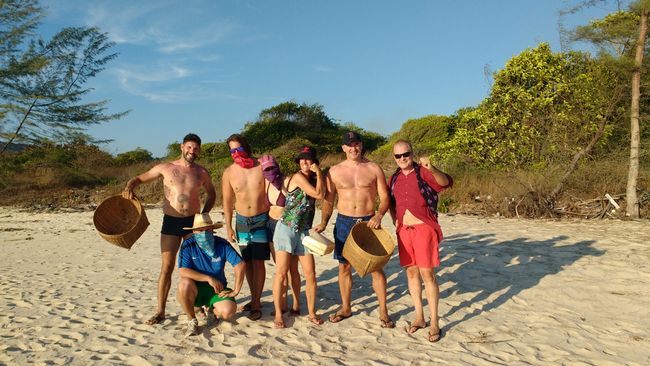
Harpidetu Buletinera
After only one day of rest, we set off on the next long bus journey early in the morning. We were ready at 6:30 a.m. and the bus arrived at 7:15 a.m. The day before, we had stocked up on snacks and water as a precaution. All the preparation is useless if you leave the goodies in the hotel room... Unfortunately, we only noticed this after a few minutes in the minibus. Not exactly an optimal start to the day.
We made our first stop just ten minutes after departure. The two front tires were replaced. With new tires, we were finally able to start around 8:00 a.m. Several families with children were on board. Since most children shared a seat with their parents, we had the entire front row to ourselves. To our delight, the minibus was equipped with air conditioning. Less nice was that the driver only turned it on for a few minutes at a time. So we opened the windows. From a smell perspective, this was the better solution anyway. Especially the children had to vomit. We were satisfied with our driver's driving skills. Less cool was the 'prayer music' blasting through the bus at full volume. As a countermeasure, the other Burmese played their own music. We put on our noise-canceling headphones. After a while, the driver changed the CD. Fortunately, everyone was satisfied with the Burmese folk music. Another noise factor was the honking. The Burmese generally love to honk. Honking has different meanings: warning - watch out, greeting, scaring away animals, etc. However, our driver slightly exaggerated the whole thing.
After almost seven hours, the minibus dropped us off at our hotel in Dawei. We unloaded our luggage and immediately went in search of food. After eating, we explored the town. Dawei is also not yet geared towards tourism. The heat drove us back to the hotel. Only in the evening did we go back outside. We found a restaurant that offers traditional Burmese street food. The dish reminded us of filled Indian roti, served with curry - tasted very delicious.
The next day we rented a scooter. We drove to the Sin Htauk Beach, about 60 km away. We enjoyed the ride through the small villages. We were greeted and smiled at everywhere. The last section was a bit bumpy because the road is (still) not paved. In the last village, we parked the scooter and took the boat for the final stretch. Normally, the last part has to be covered on foot. Only at high tide can the boat navigate through the mangrove forest. From the boat, we had to climb a small hill and then looked down at the beautiful Sin Htauk Beach. The sand is white and fine, and the water wonderfully clear. We immediately liked our bungalow as well. The cottage is in the forest and from the balcony, you have a great view of the sea. It's really nice to live here. :-) The resort consists of about twenty bungalows and a restaurant. Otherwise, there is nothing in this bay. All the cottages were occupied. However, the relatively long and wide beach seemed empty. During the day, we sometimes encountered Burmese groups who were taking a day trip to the beach.
The day after our arrival, we took a boat trip to the Moscos Island. The journey took about two hours by longtail boat. Before reaching the island, we explored the underwater world with snorkeling gear. However, the reef is not overwhelmingly beautiful. We saw some clownfish, parrotfish, and schools of smaller fish, but unfortunately no colorful corals. The travel agency had advertised that it was Myanmar's healthiest reef. We hope to find even more beautiful and healthier reefs in the Mergui Archipelago. Underwater, we also discovered garbage and remnants of fishing (woven basket used by locals for fishing). Around noon, we went to a beach. This one was really stunning. Less beautiful was the trash that the locals left lying around everywhere. The beach is inhabited by simple fishermen. After lunch, we took the boat back the same way. The trip was nice but not overwhelming.
We spent the following day swimming, eating, reading, and writing blog posts. In the afternoon, a certain restlessness broke out. A fire had broken out near the bungalows. Apparently, local youths had flicked a cigarette butt into the bushes. The dry grass caught fire. Because the wind was relatively strong, and the young people reacted very slowly, the fire spread at lightning speed. All the staff of the resort grabbed (tiny) fire extinguishers and hurried to the scene of the fire. But it was too late to extinguish the fire in this way. Together with Mario and Yi Yi, a Swiss-Burmese couple we had met the night before, we inspected the situation up close. We decided to warn the other people at the resort and pack our belongings just to be safe. If the wind were to change, the resort would be in serious danger. After the warning, we joined some other resort visitors to support the locals in fighting the fire. There wasn't much we could do. The locals cut green branches from the trees and beat the flames with them. Somehow, they managed to maintain the critical line (path between the fire wall and the resort). We Westerners limited ourselves to covering the critical areas with sand, securing the aisle to the bungalows. When the local fire brigade arrived what felt like an eternity later, they did nothing at all. They took a few snapshots of the 'Western fire squad' with their mobile phones. Luckily, the wind shifted, and the fire moved further inland. How rapidly the fire had spread became apparent the next day. After the firefighting action, we took a bath in the sea along with our clothes. Mainly, to get rid of the smell of smoke and sweat and to wash off the sand sticking to our bodies. What an afternoon.
In the two days, thanks to Yi Yi and Mario, we learned a lot about Burmese culture and received some insider tips. The Burmese count eight days of the week, with Wednesday morning and evening counting separately. Each day is associated with an animal symbol, a planet, a cardinal direction, and a (mostly negative) character trait. Mathias was born on a Monday. His characteristics: tiger, moon, jealous. Andrea was born on a Friday: guinea pig, Venus, talkative (who would have thought ;-)). Apparently, people born on Monday are an excellent match for Friday children. The relationship is supposed to be harmonious. How the jealous tiger fits with the talkative guinea pig, however, remains a mystery to us. Before getting married, the Burmese check the compatibility of the partners based on this symbolism. So the Burmese blessing would be guaranteed for us - phew. Generally, faith - as well as the associated superstition - has a central meaning for the Burmese. It is not for nothing that Myanmar is called the land of 1000 pagodas.
Unfortunately, the next day it was already time to say goodbye to our bungalow. Together with other guests, we marched through the mangrove forest back to our scooter. On the way back, we had a flat tire. Luckily, there is a 'workshop' on every corner. Changing the tube cost us the equivalent of three Swiss francs. Without further incidents, we reached Dawei. There we decided to make a detour to the train station to get the tickets for the next day. Already the way to the station was a little adventure. The road is full of potholes and feels like it leads to nowhere. To our amazement, at the end of the road, we actually found a larger structure and tracks. The Dawei train station is a very run-down building from colonial times. The interior of the huge hall was empty, and otherwise, it didn't look like the station was still in operation. The ticket counter hadn't been used for at least twenty years. We looked around the premises and met an English-speaking man. He explained to us that the tickets can only be bought in the morning.
Tomorrow we will continue our journey from Dawei to Mawlamyine, the third-largest city in the country, on the slowest train in Myanmar. The journey is expected to take about 16 hours.
Harpidetu Buletinera
Erantzun
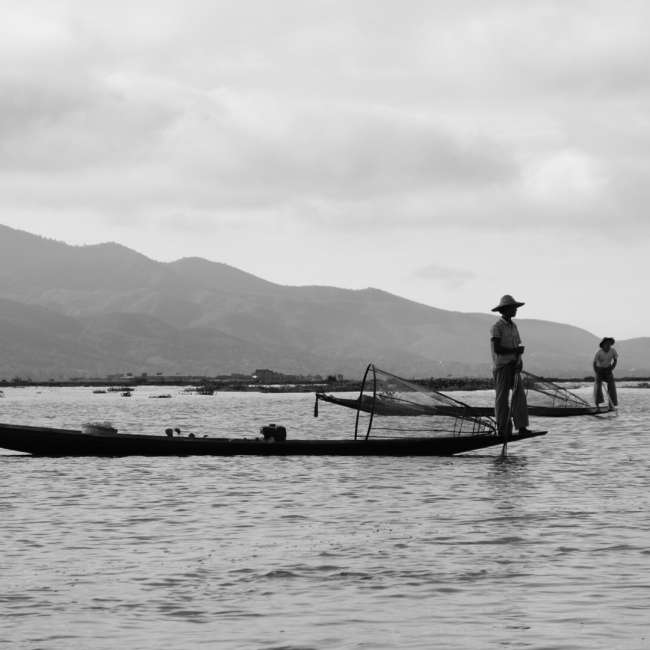
Bidaien txostenak Myanmar
